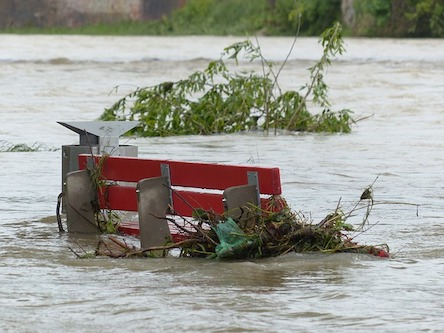The price of olive oil in Spain has skyrocketed due to a severe drought that has affected olive production. Spain is the largest producer of olive oil in the world, accounting for 70% of European Union consumption and 45% of global consumption. The lack of rain in olive-producing areas has significantly reduced the amount of oil being produced, leading to an increase in prices. In fact, olive oil prices have risen by more than 70% this year alone. The Nuestra Señora del Pilar cooperative, the largest olive oil factory in the world, has experienced one of the worst harvests on record. The rise in prices can be attributed to increased production costs, such as fuel, electricity, and fertilizers, as well as the lack of rain.
Climate change is exacerbating the effects of the drought, as temperatures in the Mediterranean region are rising 20% faster than the global average. Traditional assumptions that a poor harvest would be followed by a good one are no longer reliable. Some parts of Spain, including Andalusia, have implemented measures to reduce water usage, but more needs to be done. The president of the cooperative calls for investment in irrigation systems to mitigate the impact of drought.
The increase in olive oil prices in Spain has also been observed in other European countries, although the rise has not been as sharp. Some Spaniards living near Portugal have started crossing the border to buy slightly cheaper oil. Prices in the UK and Ireland have been lower than in Spain, but this is likely due to the fact that they purchased the oil when the price was lower. The demand for olive oil in Spain is high, leading to a quicker turnover of stock. However, domestic sales have decreased by 10% as consumers opt for cheaper alternatives like sunflower oil.
Experts warn against substituting olive oil with cheaper alternatives, as olive oil is a key component of the Mediterranean diet and has numerous health benefits, particularly for cardiovascular health. The quantity of oil recommended for consumption is small, but the health benefits are significant. However, the amount of olive oil consumed is currently being determined by rainfall rather than health concerns.
In conclusion, the severe drought in Spain has led to a significant increase in the price of olive oil. The lack of rain has affected olive production, resulting in lower quantities of oil being produced. Climate change is exacerbating the effects of the drought, and measures need to be implemented to mitigate its impact. While the increase in prices has been observed in other European countries, the rise has not been as sharp. Consumers are urged not to substitute olive oil with cheaper alternatives, as olive oil is an essential component of the Mediterranean diet and has numerous health benefits.
Original news source: Olive oil price skyrockets as Spanish drought bites (BBC)
Listen:
Slow
Normal
Fast
Vocabulary:
| 1 | skyrocketed | Increased rapidly and dramatically |
| 2 | severe | Very intense or extreme |
| 3 | production | The act of making or manufacturing something |
| 4 | consumption | The act of using or consuming something |
| 5 | reduced | Made smaller or less in amount, size, or degree |
| 6 | increase | A rise or growth in size, number, or amount |
| 7 | attributed | Credited or assigned to a particular cause or source |
| 8 | costs | The expenses or expenditures required to produce or obtain something |
| 9 | implemented | Put into effect or action |
| 10 | observed | Seen or noticed something |
| 11 | alternatives | Other options or choices that can be used instead of something |
| 12 | cardiovascular | Relating to the heart and blood vessels |
| 13 | quantities | Amounts or measures of something |
| 14 | mitigate | Lessen or reduce the severity, intensity, or impact of something |
| 15 | urged | Strongly advised or encouraged to do something |
Group or Classroom Activities
Warm-up Activities:
– News Summary
Instructions: Divide the class into small groups. Give each group a few minutes to read the article silently. Then, ask each group to summarize the main points of the article in a news summary format. They should focus on the key information and try to condense it into a few sentences. Afterward, have each group share their summaries with the rest of the class.
– Opinion Poll
Instructions: Ask the class to form pairs or small groups. Give each group a list of questions related to the article, such as “Do you think the increase in olive oil prices will continue?” or “Should the government invest in irrigation systems?” Instruct the groups to discuss the questions and share their opinions. Afterward, have a class discussion where each group shares their opinions and the reasons behind them.
– Vocabulary Pictionary
Instructions: Write a list of vocabulary words from the article on the board, such as “drought,” “exacerbate,” and “mitigate.” Divide the class into small teams. Each team takes turns selecting a word from the list and drawing a picture on the board to represent the word. The rest of the class must guess the word based on the drawing. Encourage the use of English to describe the drawings and guess the words.
– Pros and Cons
Instructions: Divide the class into two groups. Assign one group to come up with a list of pros for the increase in olive oil prices and the other group to come up with a list of cons. Give them a few minutes to brainstorm and write down their ideas. Then, have each group share their lists with the rest of the class. Encourage a respectful debate and discussion about the different perspectives.
– Future Predictions
Instructions: Ask each student to individually write down their predictions for the future of olive oil prices in Spain and its impact on the Mediterranean diet. They can consider factors such as climate change, production costs, and consumer behavior. Afterward, have a class discussion where students share their predictions and explain the reasons behind them. Encourage students to respond to each other’s predictions and engage in a thoughtful discussion.
Comprehension Questions:
1. What is the main reason for the increase in olive oil prices in Spain?
2. How much have olive oil prices risen by this year alone?
3. What are some of the increased production costs that have contributed to the rise in prices?
4. How is climate change exacerbating the effects of the drought in Spain?
5. What measures have some parts of Spain, like Andalusia, taken to reduce water usage?
6. Why have some Spaniards living near Portugal started crossing the border to buy olive oil?
7. Why have prices in the UK and Ireland been lower than in Spain?
8. Why do experts warn against substituting olive oil with cheaper alternatives?
Go to answers ⇩
Listen and Fill in the Gaps:
The price of olive oil in Spain has skyrocketed due to a severe drought that has affected olive (1)______. Spain is the largest producer of olive oil in the (2)______, accounting for 70% of European Union consumption and 45% of global consumption. The lack of rain in olive-producing areas has significantly reduced the amount of oil being (3)______, leading to an increase in prices. In fact, olive oil prices have risen by more than 70% this year alone. The Nuestra Señora del Pilar cooperative, the largest olive oil factory in the world, has experienced one of the worst harvests on (4)______. The rise in prices can be attributed to increased production costs, such as fuel, electricity, and fertilizers, as well as the lack of rain.
Climate change is exacerbating the effects of the drought, as temperatures in the (5)______ region are rising 20% faster than the global average. Traditional assumptions that a poor harvest would be followed by a good one are no longer reliable. Some parts of Spain, including (6)______, have implemented measures to reduce water usage, but more needs to be done. The (7)______ of the cooperative calls for investment in irrigation systems to mitigate the impact of drought.
The increase in olive oil prices in Spain has also been observed in other European countries, although the rise has not been as sharp. Some Spaniards (8)______ near Portugal have started crossing the border to buy slightly (9)______ oil. Prices in the UK and Ireland have been lower than in Spain, but this is likely due to the fact that they (10)______ the oil when the price was lower. The demand for olive oil in Spain is high, leading to a (11)______ turnover of stock. However, domestic sales have decreased by 10% as consumers opt for cheaper alternatives like sunflower oil.
Experts warn against substituting olive oil with cheaper alternatives, as olive oil is a key component of the Mediterranean diet and has numerous health benefits, particularly for (12)______ health. The quantity of oil recommended for consumption is small, but the health benefits are significant. However, the amount of olive oil consumed is currently being determined by rainfall rather than health concerns.
In conclusion, the severe drought in Spain has led to a significant increase in the price of olive oil. The lack of rain has affected olive production, resulting in lower quantities of oil being produced. Climate change is exacerbating the effects of the drought, and measures need to be implemented to mitigate its impact. While the increase in prices has been observed in (13)______ European countries, the rise has not been as sharp. (14)______ are urged not to substitute olive oil with cheaper (15)______, as olive oil is an essential (16)______ of the Mediterranean diet and has numerous health benefits.
Go to answers ⇩
Discussion Questions:
Students can ask a partner these questions, or discuss them as a group.
1. How would you feel if the price of a staple food item in your country increased by 70% in one year?
2. Do you think climate change is a significant factor in the severe drought in Spain? Why or why not?
3. What is the importance of irrigation systems in mitigating the impact of drought?
4. How do you think the rise in olive oil prices in Spain will affect the Mediterranean diet?
5. Do you think it is worth paying more for olive oil, considering its health benefits? Why or why not?
6. What alternatives to olive oil do people in your country use for cooking?
7. How do you think the decrease in domestic sales of olive oil will impact the Spanish economy?
8. What measures do you think should be implemented to reduce water usage in olive-producing areas?
9. How do you think the rise in olive oil prices will affect the tourism industry in Spain?
10. How would you feel if you had to cross the border to a neighboring country to buy a cheaper version of a staple food item?
11. What are some other examples of food items that have increased in price due to climate-related issues in your country?
12. How do you think the rise in olive oil prices will impact the global market for olive oil?
13. Do you think the rise in olive oil prices will lead to an increase in the production of alternative oils, such as sunflower oil? Why or why not?
14. How would you feel if the price of a food item that is essential to your cultural cuisine increased significantly?
15. What measures do you think individuals can take to support the olive oil industry in Spain during this difficult time?
Individual Activities
Vocabulary Meanings:
Match each word to its meaning.
Words:
1. skyrocketed
2. severe
3. production
4. consumption
5. reduced
6. increase
7. attributed
8. costs
9. implemented
10. observed
11. alternatives
12. cardiovascular
13. quantities
14. mitigate
15. urged
Meanings:
(A) The expenses or expenditures required to produce or obtain something
(B) Increased rapidly and dramatically
(C) Lessen or reduce the severity, intensity, or impact of something
(D) The act of using or consuming something
(E) Amounts or measures of something
(F) Made smaller or less in amount, size, or degree
(G) Seen or noticed something
(H) Very intense or extreme
(I) Strongly advised or encouraged to do something
(J) Put into effect or action
(K) Relating to the heart and blood vessels
(L) Credited or assigned to a particular cause or source
(M) A rise or growth in size, number, or amount
(N) Other options or choices that can be used instead of something
(O) The act of making or manufacturing something
Go to answers ⇩
Multiple Choice Questions:
1. What is the main reason for the increase in olive oil prices in Spain?
(a) Increased production costs
(b) Lack of demand
(c) Severe drought
(d) Climate change
2. Which country is the largest producer of olive oil in the world?
(a) Italy
(b) Spain
(c) Greece
(d) Portugal
3. How much has the price of olive oil risen this year in Spain?
(a) More than 70%
(b) 45%
(c) 20%
(d) 10%
4. What is the largest olive oil factory in the world?
(a) Andalusia cooperative
(b) Mediterranean cooperative
(c) Portugal cooperative
(d) Nuestra Señora del Pilar cooperative
5. What is exacerbating the effects of the drought in Spain?
(a) Climate change
(b) Increased demand
(c) Lack of irrigation systems
(d) Decreased production costs
6. What percentage of European Union consumption does Spain account for?
(a) 45%
(b) 20%
(c) 70%
(d) 10%
7. What are some measures that have been implemented in Spain to reduce water usage?
(a) Increased production costs
(b) Investment in irrigation systems
(c) Decreased domestic sales
(d) Andalusia cooperative
8. Why are prices in the UK and Ireland lower than in Spain?
(a) They have implemented measures to reduce water usage
(b) They purchased the oil when the price was lower
(c) They have higher production costs
(d) They have a higher demand for olive oil
Go to answers ⇩
True or False Questions:
1. Spain is not the largest producer of olive oil in the world.
2. The abundance of rain in olive-producing areas has led to a decrease in the amount of oil being produced.
3. Experts warn against substituting olive oil with cheaper alternatives, as it is a key component of the Mediterranean diet and has numerous health benefits.
4. The severe drought in Spain has caused a significant increase in the price of olive oil.
5. No parts of Spain, including Andalusia, have implemented measures to reduce water usage.
6. Climate change is causing temperatures in the Mediterranean region to rise 20% faster than the global average.
7. The increase in olive oil prices in Spain has not been observed in other European countries, and the rise has been as sharp.
8. Olive oil prices have risen by more than 70% in Spain this year alone.
Go to answers ⇩
Write a Summary:
Write a summary of this news article in two sentences.
Check your writing now with the best free AI for English writing!
Writing Questions:
Answer the following questions. Write as much as you can for each answer.
Check your answers with our free English writing assistant!
1. What is the main reason for the increase in olive oil prices in Spain?
2. How has climate change affected olive production in Spain?
3. What measures have been taken in some parts of Spain to reduce water usage?
4. Why have some Spaniards started crossing the border to buy olive oil in Portugal?
5. Why are consumers urged not to substitute olive oil with cheaper alternatives?
Answers
Comprehension Question Answers:
1. The main reason for the increase in olive oil prices in Spain is a severe drought that has affected olive production.
2. Olive oil prices have risen by more than 70% this year alone.
3. Some of the increased production costs that have contributed to the rise in prices include fuel, electricity, and fertilizers.
4. Climate change is exacerbating the effects of the drought in Spain as temperatures in the Mediterranean region are rising 20% faster than the global average.
5. Some parts of Spain, like Andalusia, have implemented measures to reduce water usage.
6. Some Spaniards living near Portugal have started crossing the border to buy olive oil because it is slightly cheaper there.
7. Prices in the UK and Ireland have been lower than in Spain likely because they purchased the oil when the price was lower.
8. Experts warn against substituting olive oil with cheaper alternatives because olive oil is an essential component of the Mediterranean diet and has numerous health benefits.
Go back to questions ⇧
Listen and Fill in the Gaps Answers:
(1) production
(2) world
(3) produced
(4) record
(5) Mediterranean
(6) Andalusia
(7) president
(8) living
(9) cheaper
(10) purchased
(11) quicker
(12) cardiovascular
(13) other
(14) Consumers
(15) alternatives
(16) component
Go back to questions ⇧
Vocabulary Meanings Answers:
1. skyrocketed
Answer: (B) Increased rapidly and dramatically
2. severe
Answer: (H) Very intense or extreme
3. production
Answer: (O) The act of making or manufacturing something
4. consumption
Answer: (D) The act of using or consuming something
5. reduced
Answer: (F) Made smaller or less in amount, size, or degree
6. increase
Answer: (M) A rise or growth in size, number, or amount
7. attributed
Answer: (L) Credited or assigned to a particular cause or source
8. costs
Answer: (A) The expenses or expenditures required to produce or obtain something
9. implemented
Answer: (J) Put into effect or action
10. observed
Answer: (G) Seen or noticed something
11. alternatives
Answer: (N) Other options or choices that can be used instead of something
12. cardiovascular
Answer: (K) Relating to the heart and blood vessels
13. quantities
Answer: (E) Amounts or measures of something
14. mitigate
Answer: (C) Lessen or reduce the severity, intensity, or impact of something
15. urged
Answer: (I) Strongly advised or encouraged to do something
Go back to questions ⇧
Multiple Choice Answers:
1. What is the main reason for the increase in olive oil prices in Spain?
Answer: (c) Severe drought
2. Which country is the largest producer of olive oil in the world?
Answer: (b) Spain
3. How much has the price of olive oil risen this year in Spain?
Answer: (a) More than 70%
4. What is the largest olive oil factory in the world?
Answer: (d) Nuestra Señora del Pilar cooperative
5. What is exacerbating the effects of the drought in Spain?
Answer: (a) Climate change
6. What percentage of European Union consumption does Spain account for?
Answer: (c) 70%
7. What are some measures that have been implemented in Spain to reduce water usage?
Answer: (d) Andalusia cooperative
8. Why are prices in the UK and Ireland lower than in Spain?
Answer: (b) They purchased the oil when the price was lower
Go back to questions ⇧
True or False Answers:
1. Spain is not the largest producer of olive oil in the world. (Answer: False)
2. The abundance of rain in olive-producing areas has led to a decrease in the amount of oil being produced. (Answer: False)
3. Experts warn against substituting olive oil with cheaper alternatives, as it is a key component of the Mediterranean diet and has numerous health benefits. (Answer: True)
4. The severe drought in Spain has caused a significant increase in the price of olive oil. (Answer: True)
5. No parts of Spain, including Andalusia, have implemented measures to reduce water usage. (Answer: False)
6. Climate change is causing temperatures in the Mediterranean region to rise 20% faster than the global average. (Answer: True)
7. The increase in olive oil prices in Spain has not been observed in other European countries, and the rise has been as sharp. (Answer: False)
8. Olive oil prices have risen by more than 70% in Spain this year alone. (Answer: True)
Go back to questions ⇧















